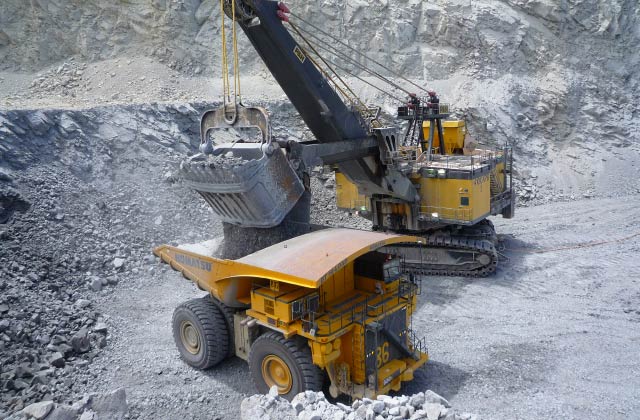
Where will your degree take you? Learn more about what a future in mining engineering can look like.
From cell phones to sidewalks to laundry detergent, the average person born in America relies on over 2 million pounds of mined materials in their lifetime[1].
All raw materials used by society, aside from plants, are extracted from the earth. Gold, silver, nickel, platinum, iron, nuclear fuel, lithium, potash, building materials, coal, and oil are all mined. As the world moves towards greener energy, mined materials are still in high demand. Some materials are needed in even larger quantities to help make green technologies. Mining engineers ensure this process is done safely, efficiently, and sustainably.
Mining engineers are familiar with all aspects of the work involved in the operation of a mining project. Managing day-to-day mining activities, they work to maximize extraction volume and profit and ensure the operations are safe for the people and equipment involved.
Mining engineers also figure out where valuable and accessible material deposits exist and strategize the best methods to extract them safely from the ground. They play a significant role in transporting and refining those materials so they can be used to make products. Both gathering and refining these raw materials are made possible through their work.
The work of a mining engineer isn’t limited to mines. They’re also vital to the minerals industry and environmental and technological fields with expertise in technical design and business management. A broad spectrum of engineering skills is required in mining engineering, including civil, electrical, geological, mechanical, and computer engineering knowledge.
Mining engineering offers a rewarding career for anyone who wants to contribute significantly to the world economy and enjoys the opportunity to travel for work.

Where will your degree take you? Learn more about what a future in mining engineering can look like.